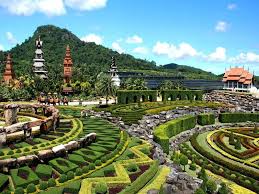
Throughout the long history of China, religion and spirituality were deeply intertwined with governance. The imperial court, under the leadership of the emperor, played a central role in both the political and spiritual life of the empire. One of the most significant aspects of the court’s religious practices involved honoring various deities, whose favor and blessings were believed to ensure the emperor’s rule, the prosperity of the state, and the well-being of the people. In particular, the royal ceremonies conducted in the presence of deities were not only seen as religious rites but also as a demonstration of the emperor’s legitimacy and his divine right to rule.
Deities held profound significance in royal rituals, with their roles embedded in the cosmology, governance, and social structure of ancient China. The emperor, as the “Son of Heaven,” was considered the mediator between the celestial world and the human realm, and his duty was to perform various rituals to honor these deities. Through these ceremonies, the emperor aimed to maintain balance, harmony, and order within the cosmos and secure divine support for his reign. This article will explore the importance of deities in royal rituals, shedding light on their influence over imperial governance, societal values, and the spiritual realm.
1. The Emperor’s Role as the “Son of Heaven”
The emperor of China was more than just a political ruler; he was regarded as the Son of Heaven (天子, Tianzi). This title signified that the emperor had been chosen by Heaven to govern the land, with a divine mandate to ensure the welfare of the people and the harmony between Heaven, Earth, and humanity. The emperor’s role as the intermediary between the human realm and the celestial world was central to the stability of the empire. His duty was not only to rule justly but to perform religious and ceremonial acts that maintained cosmic order and ensured the blessings of the gods.
In ancient China, it was believed that the emperor’s authority was not purely secular; it was divinely sanctioned. Therefore, to maintain his position, the emperor had to demonstrate his spiritual prowess and moral rectitude. The rituals he performed for the deities reinforced this divine connection and secured the legitimacy of his reign.
2. The Worship of Major Deities in Imperial Rituals
Several deities were central to the imperial rituals, and their worship was an essential part of the ceremonies that the emperor conducted throughout his reign. Among the most important were the Heavenly Deity (Tian), the Earthly Deity (Di), the God of Agriculture, the God of the River, and various other local and regional deities. Each of these deities played a distinct role in the cosmic order and had specific areas of influence.
2.1 Heaven (Tian) – The Supreme Deity
The Heavenly Deity (Tian) was the most significant deity in the Chinese cosmology and played an essential role in imperial rituals. As the supreme power governing the universe, Tian was believed to control all aspects of life, including natural phenomena, political events, and the fate of the people. The emperor’s connection to Tian was crucial, and it was believed that the emperor’s right to rule was contingent upon maintaining Tian’s favor.
Rituals to honor Tian were performed at the Temple of Heaven (天坛) in Beijing, where the emperor would offer sacrifices and pray for blessings. These rituals, such as the Heavenly Sacrifice (天祭), were usually held during important moments in the calendar, such as the winter solstice, and involved the presentation of offerings like grains, fruits, and animals. By performing these rites, the emperor sought to reaffirm his divine right to rule and ensure that Tian would continue to bless the empire with prosperity, peace, and good harvests.
The worship of Tian also emphasized the concept of the Mandate of Heaven (天命), which held that a ruler’s legitimacy depended on his moral behavior and the well-being of his people. If an emperor governed unjustly or failed to maintain harmony with Tian, it was believed that Heaven would withdraw its favor, and a new ruler would be appointed.
2.2 Earth (Di) – The God of the Land
The Earthly Deity (Di) was another key figure in the imperial pantheon, representing the natural world and the land. Earth was believed to be the foundation of human existence, providing the resources necessary for survival. The emperor performed rituals to honor Earth, often at the Altar of Earth (地坛), to ensure the fertility of the land and the prosperity of the nation.
The relationship between the emperor and Earth was one of mutual respect. The emperor, as the Son of Heaven, was seen as the protector of the land, ensuring that it remained fertile and productive. In turn, by honoring the Earth Deity, the emperor sought to secure a bountiful harvest, prosperity for the people, and a stable reign.
2.3 The God of Agriculture
Agriculture was the backbone of the Chinese economy, and the God of Agriculture (also known as the God of the Fields) played a vital role in the imperial rituals. The emperor would offer sacrifices to this deity during agricultural ceremonies, seeking blessings for successful crops and ensuring that the nation’s food supply remained stable.
The worship of the God of Agriculture symbolized the emperor’s role as the protector of the agricultural system and his responsibility to maintain the economic health of the empire. It was believed that the emperor’s performance of these rituals would lead to favorable weather conditions, abundant crops, and social harmony.
2.4 Local and Regional Deities
In addition to the major deities, there were many local and regional deities worshipped in the imperial court. These gods and spirits were often associated with specific locations, such as mountains, rivers, or towns, and were believed to have control over the prosperity of those areas. The emperor would perform rituals to honor these deities, ensuring that their blessings were extended to the imperial family and the people under his rule.
The worship of local deities reflected the emperor’s role as the guardian of the entire empire, ensuring that every region received divine favor. This aspect of the emperor’s religious duties helped reinforce the unity of the vast empire, as it demonstrated his commitment to maintaining harmony and balance across the land.
3. Rituals and Ceremonies in the Imperial Court
Rituals dedicated to the gods and deities were not just personal acts of devotion but were also state-sponsored events that involved the participation of the entire imperial court. These ceremonies were elaborate affairs, carefully planned and conducted to maintain the harmony between the spiritual and earthly realms.
The Temple of Heaven in Beijing, one of the most famous sites of imperial worship, was the focal point of many of these ceremonies. The emperor would conduct sacrificial rites to honor the Heavenly Deity and ensure divine favor for his rule. These rituals were meticulously planned, with elaborate offerings and ceremonial actions designed to evoke the power of the gods.
Similarly, the emperor’s annual rituals at the Altar of Earth and other temples reinforced the idea that the emperor’s role was both spiritual and political. By offering sacrifices and prayers, the emperor demonstrated his responsibility to maintain balance and order, not only for the benefit of the imperial family but also for the entire population.
4. The Significance of Rituals in Royal Governance
The rituals conducted by the emperor were deeply connected to his governance. In the ancient Chinese worldview, the well-being of the state was inextricably linked to the emperor’s ability to maintain favor with the gods. A failure to properly conduct these rituals could be seen as a sign of divine disfavor, and it was believed that the emperor’s reign could be jeopardized if he neglected his spiritual duties.
Furthermore, the emperor’s relationship with the gods was not only a matter of personal piety but also a reflection of the broader governance system. The rituals performed in honor of the deities demonstrated the emperor’s ability to align the political and spiritual realms, ensuring that both the cosmic order and human society functioned in harmony.
5. Conclusion: The Role of Deities in the Legitimacy of Imperial Rule
The worship of deities in the royal court was not merely a religious practice; it was a cornerstone of imperial governance. The emperor’s role as the Son of Heaven and his responsibility to maintain cosmic balance were central to the stability of the state. Through the performance of rituals honoring the gods and deities, the emperor sought to ensure that the empire would thrive and that his reign would be marked by peace, prosperity, and harmony.
These rituals reinforced the emperor’s legitimacy and divine right to rule, while also emphasizing his moral duty to govern with justice and integrity. In the ancient Chinese worldview, the emperor’s relationship with the deities was paramount to the well-being of the nation, and it was through these sacred acts that the emperor reaffirmed his connection to the divine and secured the favor of Heaven, Earth, and the gods.









